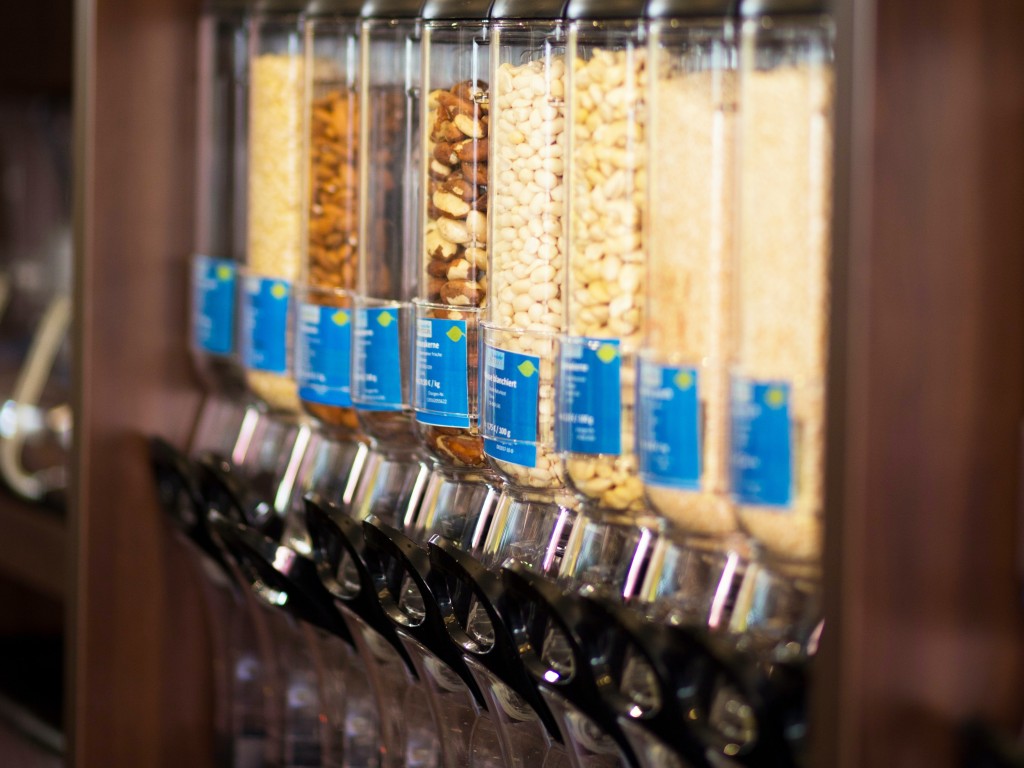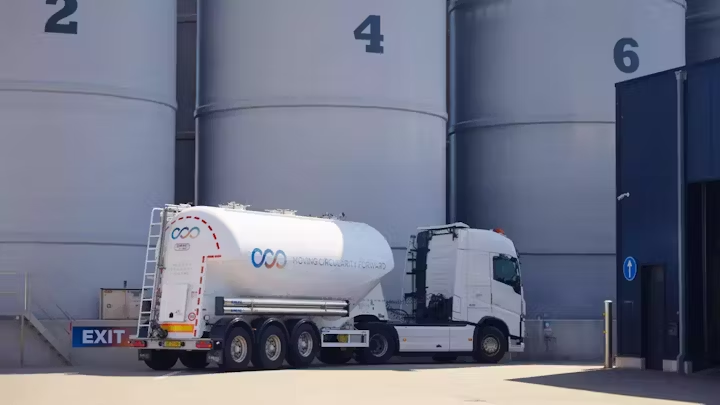Role of logistics crucial in a circular economy
The aim is to have a circular economy in the Netherlands by 2050. Exactly what this will look like is still difficult to say. But there is no doubt that we will deal with waste in a completely different way. For society to become sustainable, the circular method will increasingly have to become the standard. But how do we get there? A crucial element of a circular economy is logistics, argues Violet Swakman of science network Het Groene Brein.
Without logistics, compostable dinner plates do not end up at a compost facility after use. And without logistics, used furniture does not get to the right place for a second life. From waste collection to moving goods for repair or refurbishment: in a circular economy logistics plays a central role.
The conference 'Logistics moves the circular economy' brought together researchers and professionals from the logistics sector to reflect on how logistics can serve the circular economy s circular economy. Research findings and practical experiences were also shared.
A circular economy
A circular economy is an economic system aimed at minimising waste and maximising the reuse of raw materials. Instead of the traditional linear model of 'take, make, use and throw away', a circular economy revolves around closing cycles. This means that products, materials and raw materials stay in the chain for as long as possible through reuse, repair, remanufacturing and recycling.
Conclusions from research and practice
Wageningen University and Hogeschool van Amsterdam are conducting research into logistics within circularity. Within the programme LogiCELL (Logistics in a Circular Economy Living Lab), conducted with partners AMS Institute and Het Groene Brein, circular solutions are tested and analysed directly in logistics practice.
Examples of questions answered within LogiCELL are: 'How can elephant dung from ARTIS be used as compost within the city limits of Amsterdam, and what logistics are needed to do so?' And 'when industrial waste is going to be collected more separately, how do you ensure that there are not too many logistics flows? What are the best locations for storage and transfer of waste? There are plenty of questions that are answered within projects (living labs) where researchers learn interesting lessons about the current role of logistics. They also try to find out where the bottlenecks are and what approach towards circularity works best.
Added value for entrepreneur
An important conclusion that the researchers have already been able to draw is that circular solutions circular solutions work especially well if there is added value for the entrepreneur in return.In practice, this shows that added value for an entrepreneur can take many forms. For instance, an entrepreneur who has to separate (more) waste has extra work to do. But if this waste is collected more often under the new rules, the entrepreneur will have to keep less space free in the business for waste storage.
The extra space in the shop is then a great added value for the entrepreneur. If a cosmetics entrepreneur invites consumers to hand in cosmetics packaging for recycling in the shop, this can create additional customer loyalty and traffic in the shop. So, inviting entrepreneurs to take up their social role within a circular economy works best if it also comes along with a benefit for the entrepreneurs.
Normal storage of product stock
On the subject of dealing with physical space, the researchers concluded that storage of circular residual streams should actually be seen as the 'normal' storage of product stock (rather than storage of waste). How an entrepreneur should then design storage of residual streams, of course, depends very much on the type of product they are dealing with. Is it large, is it small? Is it perishable and is there a risk of pest nuisance? Once it is clear how it should be stored, you can apply existing logistics knowledge for the stored raw materials, to deal with logistics movements as efficiently as possible.
The LogiCELL research programme is also investigating the specific case where a residual stream has a limited shelf life. It examines the additional challenges this poses for logistics planning and storage.
LogiCELL
In LogiCELL, practice and science work on logistics issues around the circular economy. The transition to the circular economy is an important part of a sustainable society. The Dutch government as well as the European Union have therefore also set ambitious targets for increasing circularity. From a logistics perspective, this means that many business models and underlying supply chains need to be revised.
This project runs from 2023 to 2025 and is funded by TKI Dinalog. The second half of the LogiCELL research project will continue to focus on practical projects where the role of logistics in circularity can be tested and stimulated.
Giving value to by-products
An example of a company that has tackled the challenges of limited shelf-life residues is Looop. This company is committed to giving value to by-products from food and fermentation plants. They specialise in processing 'wet' residual streams, such as potato peels, liquid wheat starch and chocolate water.
What can they make from it? They make ingredients for insect, pig, dog and cat food from it, for example, but also fertiliser, compostable cat litter, sheet material, bio-plastics. Together with their partner Hazenberg, they recognise that residues and by-products should not be seen as waste, but as product stock. Paul and Johan Hazenberg even converted their former pig farm into a storage and blending location for Looop's product streams. In this way, Looop and Hazenberg have already supplied millions of kilos of mixtures to the agricultural and insect sectors.
Currently, Looop brings nearly 2 million tonnes of organic co-products to value on an annual basis in various outlets, including the compound feed industry, and applications. Looop has deliberately chosen to put only the logo on the wagons and not the name. "Our logo with the pay-off 'moving circularity forward' makes it clear at a stroke that the particular entrepreneur where our truck turns down the yard is working on circularity and is socially driven," says operations manager Bram Kuunders.
'Mandatory regulation necessary'
In terms of regulation, it was concluded that binding regulations are necessary for circular logistics. In doing so, it was found that it is especially important to create a level playing field for (logistics) entrepreneurs through regulation. Practice shows that circular initiatives are often more expensive to implement than non-circular initiatives.
Fair competition
Only when generally applicable rules are introduced can a situation of fair competition arise. For example, a Dutch entrepreneur who recycles batteries cannot compete with 'virgin' batteries that are cheaply produced in China.
Thus, if we want to encourage reuse of raw materials such as chemicals in batteries, regulations will have to be put in place that make and keep the playing field more accessible for entrepreneurs who have a circular approach. A key question here is: which regulations should be introduced regionally? And which ones should be introduced at the European or even global level?
Source: Logistiek.nl

